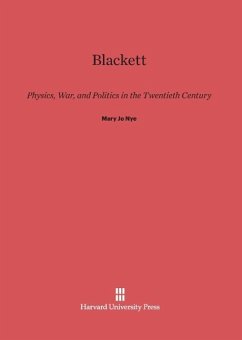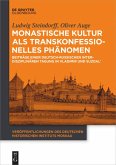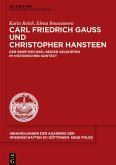This is a lively and compact biography of P. M. S. Blackett, one of the most brilliant and controversial physicists of the twentieth century. Nobel laureate, leader of operational research during the Second World War, scientific advisor to the British government, President of the Royal Society, member of the House of Lords, Blackett was also denounced as a Stalinist apologist for opposing American and British development of atomic weapons, subjected to FBI surveillance, and named as a fellow traveler on George Orwell's infamous list.
His service as a British Royal Navy officer in the First World War prepared Blackett to take a scientific advisory role on military matters in the mid-1930s. An international leader in the experimental techniques of the cloud chamber, he was a pioneer in the application of magnetic evidence for the geophysical theory of continental drift. But his strong political stands made him a polarizing influence, and the decisions he madecapture the complexity of living a prominent twentieth-century scientific life.
His service as a British Royal Navy officer in the First World War prepared Blackett to take a scientific advisory role on military matters in the mid-1930s. An international leader in the experimental techniques of the cloud chamber, he was a pioneer in the application of magnetic evidence for the geophysical theory of continental drift. But his strong political stands made him a polarizing influence, and the decisions he madecapture the complexity of living a prominent twentieth-century scientific life.
A careful narrative, refreshing in its brevity.
In Blackett: Physics, War, and Politics in the Twentieth Century, Mary Jo Nye, a well-known historian of science, has produced for a general readership a splendid biography of this remarkably multi-faceted man. Of particular note are her discussions on Blackett's new universal law of nature and her analysis of Blackett's looks, leadership style, presence, friendships, and connections.
A wonderfully faithful and readable biography.
At the heart of Mary Jo Nye's thought-provoking biography of British physicist and Nobel laureate Patrick Maynard Stuart Blackett is the question of whether science and politics mix. In exploring Blackett's life, Nye portrays a researcher, political adviser and scientific leader willing to take risks, move into new areas of research and speak out on matters of politics and war. In doing so, she addresses the important question of how (and at what price) once can reconcile a scientific career with political activism...By displaying his commitment to science and society through his moral courage, Blackett exemplified the modern scientist acting as a good public citizen.
Mary Jo Nye has written a concise scholarly biography of this remarkable man, giving the detailed background to his achievement while unsentimentally describing the traits that made him so controversial...[Blackett's] was a remarkable life, and we are fortunate that a scholar as meticulous as Nye is the first to write it.
This is an important study; it provides numerous fresh insights into the rich and multifaceted life and work of Blackett and hence will be of great interest to historians and scientists.
Twice I sat down and read it through from start to finish without getting up. On each occasion, I had the rare experience of encountering a book which I wished had been longer. Some of the credit belongs to Blackett as a profoundly interesting human being and it is easier to write an interesting book about an interesting person than about a boring one; some also certainly belongs to Professor Nye who has gained an easy and readable writing style.
In Blackett: Physics, War, and Politics in the Twentieth Century, Mary Jo Nye, a well-known historian of science, has produced for a general readership a splendid biography of this remarkably multi-faceted man. Of particular note are her discussions on Blackett's new universal law of nature and her analysis of Blackett's looks, leadership style, presence, friendships, and connections.
A wonderfully faithful and readable biography.
At the heart of Mary Jo Nye's thought-provoking biography of British physicist and Nobel laureate Patrick Maynard Stuart Blackett is the question of whether science and politics mix. In exploring Blackett's life, Nye portrays a researcher, political adviser and scientific leader willing to take risks, move into new areas of research and speak out on matters of politics and war. In doing so, she addresses the important question of how (and at what price) once can reconcile a scientific career with political activism...By displaying his commitment to science and society through his moral courage, Blackett exemplified the modern scientist acting as a good public citizen.
Mary Jo Nye has written a concise scholarly biography of this remarkable man, giving the detailed background to his achievement while unsentimentally describing the traits that made him so controversial...[Blackett's] was a remarkable life, and we are fortunate that a scholar as meticulous as Nye is the first to write it.
This is an important study; it provides numerous fresh insights into the rich and multifaceted life and work of Blackett and hence will be of great interest to historians and scientists.
Twice I sat down and read it through from start to finish without getting up. On each occasion, I had the rare experience of encountering a book which I wished had been longer. Some of the credit belongs to Blackett as a profoundly interesting human being and it is easier to write an interesting book about an interesting person than about a boring one; some also certainly belongs to Professor Nye who has gained an easy and readable writing style.








